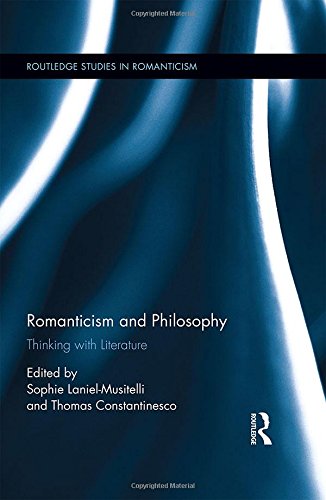

Most ebook files are in PDF format, so you can easily read them using various software such as Foxit Reader or directly on the Google Chrome browser.
Some ebook files are released by publishers in other formats such as .awz, .mobi, .epub, .fb2, etc. You may need to install specific software to read these formats on mobile/PC, such as Calibre.
Please read the tutorial at this link: https://ebookbell.com/faq
We offer FREE conversion to the popular formats you request; however, this may take some time. Therefore, right after payment, please email us, and we will try to provide the service as quickly as possible.
For some exceptional file formats or broken links (if any), please refrain from opening any disputes. Instead, email us first, and we will try to assist within a maximum of 6 hours.
EbookBell Team

4.0
6 reviewsThis volume brings together a wide range of scholars to offer new perspectives on the relationship between Romanticism and philosophy. The entanglement of Romantic literature with philosophy is increasingly recognized, just as Romanticism is increasingly viewed as European and Transatlantic, yet few studies combine these coordinates and consider the philosophical significance of distinctly literary questions in British and American Romantic writings. The essays in this book are concerned with literary writing as a form of thinking, investigating the many ways in which Romantic literature across the Atlantic engages with European thought, from 18th- and 19th-century philosophy to contemporary theory. The contributors read Romantic texts both as critical responses to the major debates that have shaped the history of philosophy, and as thought experiments in their own right. This volume thus examines anew the poetic philosophy of Wordsworth, Coleridge, Blake, Shelley, Keats, and Clare, also extending beyond poetry to consider other literary genres as philosophically significant, such as Jane Austen’s novels, De Quincey’s autofiction, Edgar Allan Poe’s tales, or Emerson’s essays. Grounded in complementary theoretical backgrounds and reading practices, the various contributions draw on an impressive array of writers and thinkers and challenge our understanding not only of Romanticism, but also of what we have come to think of as "literature" and "philosophy."